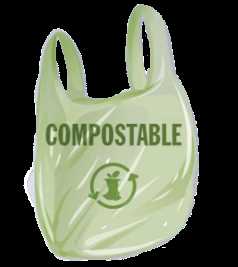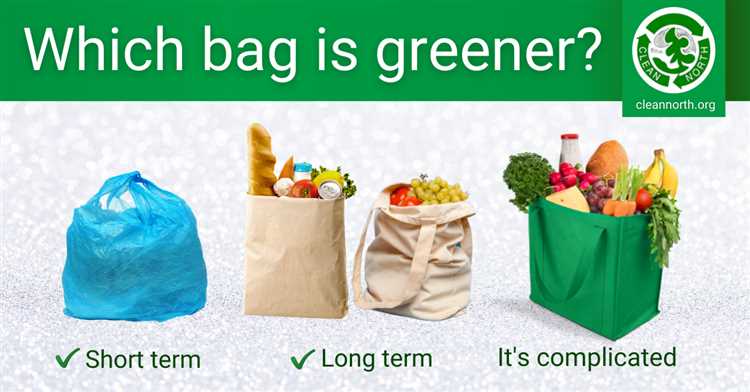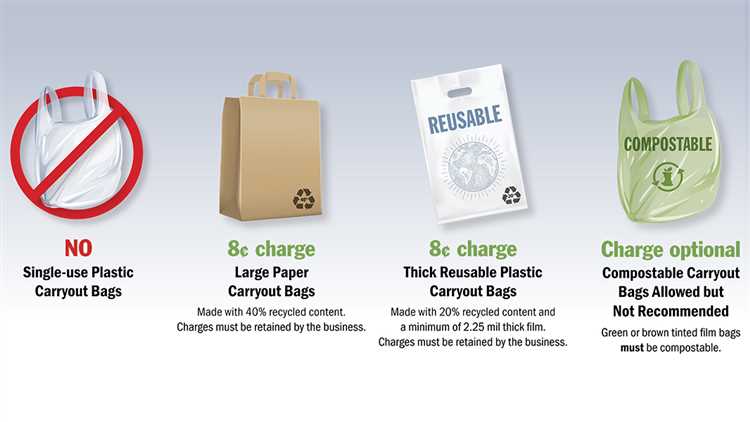The plastic bag ban and composting are two environmental initiatives that have gained significant attention in recent years. As concerns about plastic pollution and waste management grow, governments and communities have implemented these measures to reduce the negative impact on the environment. The ban on plastic bags aims to limit the use of single-use plastic and encourage the adoption of reusable alternatives. Composting, on the other hand, is a natural process that converts organic waste into nutrient-rich soil. Both initiatives have the potential to address pressing environmental issues, but it is important to examine their impact and effectiveness.
The plastic bag ban has garnered widespread support due to its potential to reduce plastic waste and protect ecosystems. Plastic bags are a major contributor to marine pollution, with millions of them ending up in oceans and waterways every year. These bags often entangle marine life, suffocating or injuring them. Additionally, plastic bags take hundreds of years to decompose, contributing to the persistence of plastic waste in the environment. By implementing a ban on plastic bags, communities can significantly reduce the amount of plastic pollution and protect vulnerable ecosystems.
Composting, on the other hand, addresses the issue of organic waste management and its impact on greenhouse gas emissions. Organic waste, such as food scraps and yard trimmings, generates methane gas when it decomposes in landfills. Methane is a potent greenhouse gas that contributes to climate change. However, when organic waste is composted, it undergoes a natural process of decomposition that produces nutrient-rich soil. This compost can then be used to enrich gardens and agricultural lands, reducing the need for chemical fertilizers. By promoting composting, communities can mitigate greenhouse gas emissions and promote sustainable agriculture.
In conclusion, the plastic bag ban and composting are vital environmental initiatives that aim to address pressing issues of plastic pollution and organic waste management. While the plastic bag ban can significantly reduce plastic waste and protect ecosystems, composting offers a solution to the problem of organic waste and greenhouse gas emissions. By implementing these initiatives on a wider scale and encouraging community participation, we can work towards a more sustainable future where our environmental impact is minimized.
- The Plastic Bag Ban: A Step towards a Greener Environment
- Decreasing Dependency on Single-Use Plastics through Alternatives
- Assessing the Environmental Benefits of Composting
- Question-answer:
- What is the purpose of the plastic bag ban?
- How effective has the plastic bag ban been in reducing plastic waste?
- What are the environmental benefits of composting?
- How can individuals compost at home?
- Is composting a feasible solution for large-scale waste management?
The Plastic Bag Ban: A Step towards a Greener Environment

Plastic bags have long been a prominent feature of our daily lives. From grocery shopping to retail purchases, these bags have become ingrained in our society. However, the convenience of plastic bags comes at a great cost to the environment.
In recent years, there has been a growing recognition of the negative impact that plastic bags have on our planet. They are made from non-renewable resources and take hundreds of years to decompose. Additionally, they contribute to the pollution of oceans and harm wildlife.
In order to mitigate these environmental problems, many countries and cities around the world have implemented plastic bag bans. These bans prohibit the use of single-use plastic bags, encouraging the use of reusable alternatives such as cloth or paper bags.
The plastic bag ban has been a significant step towards creating a greener environment. By reducing the use of plastic bags, we are conserving valuable resources and reducing greenhouse gas emissions. Plastic bags are made from fossil fuels, and their production and disposal contribute to carbon emissions and climate change.
Furthermore, the plastic bag ban has led to a decrease in litter. Plastic bags are notorious for their ability to accumulate in our streets, parks, and water bodies. By eliminating their use, we are reducing the visual pollution and environmental harm caused by discarded bags.
Moreover, the ban has had a positive impact on wildlife. Plastic bags pose a significant threat to marine life, with animals mistaking them for food or getting entangled in them. By eliminating plastic bags from our waste streams, we are protecting marine ecosystems and the creatures that depend on them.
While the plastic bag ban has been successful in many areas, it is crucial to continue efforts to educate the public about the importance of reducing plastic consumption. Encouraging sustainable alternatives and promoting the use of reusable bags will further strengthen our commitment to a greener future.
| Advantages of the Plastic Bag Ban | Disadvantages of the Plastic Bag Ban |
|---|---|
| Reduces plastic pollution | Transition can be challenging for businesses |
| Conserves natural resources | Inconvenience for consumers |
| Decreases greenhouse gas emissions | Potential increase in paper bag usage |
In conclusion, the plastic bag ban is a crucial step towards a greener environment. It helps conserve natural resources, reduces plastic pollution, and decreases greenhouse gas emissions. While there are some challenges associated with the ban, the long-term benefits far outweigh the temporary inconvenience. By working together and adopting sustainable alternatives, we can create a cleaner and healthier planet for future generations.
Decreasing Dependency on Single-Use Plastics through Alternatives

In recent years, there has been a growing concern over the excessive use of single-use plastics and its negative impact on the environment. Single-use plastics, such as plastic bags, straws, and water bottles, have become convenient but harmful contributors to pollution, waste, and overall environmental degradation. To combat this issue, many individuals, businesses, and governments have started exploring alternative options to decrease their dependency on single-use plastics.
One popular alternative to single-use plastic bags is the use of reusable bags. These bags can be made from a variety of materials, such as cotton, canvas, or jute, and are designed to be used multiple times. By encouraging the use of reusable bags, individuals can significantly decrease the consumption of single-use plastic bags and reduce the associated environmental impact.
Another alternative that has gained traction is the use of biodegradable or compostable products. These products are made from organic materials, such as cornstarch or sugarcane, that can break down naturally over time. By opting for biodegradable or compostable alternatives, individuals can ensure that their waste does not contribute to the ever-growing problem of plastic pollution.
Furthermore, businesses and governments are also playing a crucial role in decreasing dependency on single-use plastics through alternatives. Many stores and supermarkets have started offering eco-friendly packaging options, such as paper bags or cardboard boxes, instead of plastic bags. Some cities and countries have even implemented plastic bag bans or fees to discourage their use and promote the adoption of reusable alternatives.
In conclusion, decreasing dependency on single-use plastics is crucial for the long-term health and sustainability of our environment. By exploring and adopting alternative options, such as reusable bags or biodegradable products, individuals, businesses, and governments can make a positive impact on reducing plastic pollution and promoting a more sustainable future.
Assessing the Environmental Benefits of Composting

Composting is a natural process that converts organic waste, such as food scraps, yard trimmings, and leaves, into a nutrient-rich soil amendment. This sustainable practice not only helps reduce the amount of waste sent to landfills but also offers numerous environmental benefits.
One significant advantage of composting is its ability to enrich soil quality. When organic waste is composted, it breaks down into a dark, crumbly substance known as humus. Humus improves soil structure, making it more porous and allowing better water infiltration and retention. Additionally, compost adds essential nutrients to the soil, creating a favorable environment for plant growth. By utilizing compost in gardening and agriculture, we reduce the need for chemical fertilizers, which can have harmful effects on the environment through runoff and water pollution.
In addition to improving soil quality, composting also reduces greenhouse gas emissions. When organic waste decomposes in landfills, it produces methane, a potent greenhouse gas that contributes to climate change. By composting organic waste instead of disposing of it in landfills, we can significantly reduce methane emissions. Composting traps the carbon contained within the waste and converts it into stable organic matter that can be safely stored in the soil for years.
Another environmental benefit of composting is its contribution to water conservation. Compost enhances soil’s ability to retain water, reducing the need for irrigation. By using compost in gardens, parks, and agricultural fields, we can promote water conservation by minimizing runoff and evaporation. This practice becomes particularly important in regions with limited water resources or facing drought conditions.
Furthermore, composting helps mitigate the impacts of erosion and soil degradation. The organic matter in compost acts as a protective layer, preventing soil erosion caused by wind and water. It also enhances soil’s ability to hold together, reducing the risk of soil degradation and loss of fertile topsoil. By preventing erosion and soil degradation, composting helps maintain the integrity of ecosystems and preserves biodiversity.
Overall, assessing the environmental benefits of composting reveals its significant potential for sustainable waste management and environmental conservation. By diverting organic waste from landfills and utilizing it for compost production, we can improve soil quality, reduce greenhouse gas emissions, conserve water, and protect vital ecosystems. Emphasizing the importance of composting and promoting its widespread adoption can contribute to a more sustainable and resilient environment for future generations.
Question-answer:
What is the purpose of the plastic bag ban?
The purpose of the plastic bag ban is to reduce the amount of plastic waste that ends up in the environment, particularly in rivers, oceans, and landfills. By prohibiting the use of single-use plastic bags, the hope is to encourage people to bring their own reusable bags or opt for biodegradable alternatives.
How effective has the plastic bag ban been in reducing plastic waste?
The effectiveness of the plastic bag ban in reducing plastic waste varies by location. In some areas, the ban has resulted in a significant decrease in the use of single-use plastic bags and a corresponding drop in plastic waste. However, in other places, the ban has faced challenges, such as the increased use of paper bags or thicker plastic bags that are still harmful to the environment.
What are the environmental benefits of composting?
Composting has numerous environmental benefits. Firstly, it reduces the amount of organic waste that ends up in landfills, where it would produce methane, a potent greenhouse gas. Secondly, compost is a valuable soil amendment, enriching soil with essential nutrients and improving its ability to retain water. Additionally, composting can help reduce the need for chemical fertilizers, thus minimizing the negative impact of agricultural practices on the environment.
How can individuals compost at home?
There are several ways individuals can compost at home. One option is to use a traditional compost pile or bin in the backyard, where organic waste such as food scraps, yard waste, and paper products can be added and left to decompose. Another option is vermicomposting, which involves using worms to break down organic material in a controlled environment. Lastly, there are also composting systems available for use in small spaces, such as indoor composting bins or compost tumblers.
Is composting a feasible solution for large-scale waste management?
Composting can be a feasible solution for large-scale waste management, particularly for organic waste generated by households, businesses, and agricultural activities. However, implementing large-scale composting programs requires proper infrastructure, including collection systems, processing facilities, and market demand for the resulting compost. Additionally, education and outreach programs may be necessary to encourage widespread adoption of composting practices.